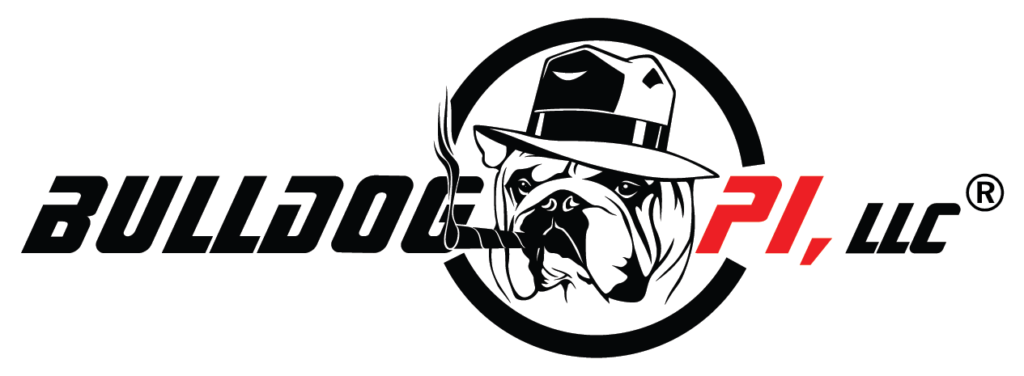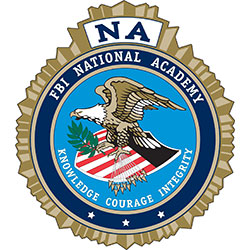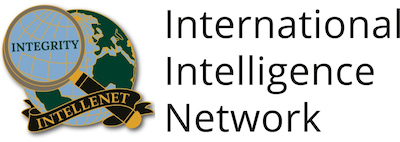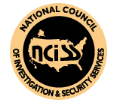People seek private investigators for many reasons. Whatever the case may be, choosing the right professional can make or break the success of your inquiry. However, many individuals don’t know where to begin when faced with this decision. Questions like: how to hire a private investigator or how do you find a private investigator for specific needs often arise.
The process may seem complicated, but with the right approach, you can identify a professional who fits your requirements. This blog will outline the steps in hiring a private investigator, address common challenges and offer practical tips to simplify the process.
Keep reading to discover everything you need to know about finding and hiring the right private investigator for your unique situation.
Step 1: Define the Purpose of Your Investigation
Before beginning the hiring process, identify why you need a private investigator. Understanding your goals helps narrow down the right professional.
Investigators often specialize in areas like:
- Criminal defense investigations
- Insurance investigations
- Child custody investigations
- Infidelity investigations
- Alimony investigations
- Missing person investigations
Choosing an investigator with expertise in your needs improves the likelihood of success. Without clarity on your goals, the process may feel confusing or inefficient.
Step 2: Research Your Options
Many people wonder how to get a private investigator who is both qualified and trustworthy. Research ensures you avoid scams, unlicensed practitioners or those without relevant expertise.
Here’s how to best approach your research:
- Search Professional Directories: Use resources like NALI or state licensing boards to find vetted investigators.
- Review Online Profiles: Look for detailed descriptions of services, case studies and specializations.
- Check Client Testimonials: Seek feedback from previous clients to gauge their reliability.
- Ask For Recommendations: Friends, family, lawyers or other professionals can offer trusted referrals.
- Focus On Specialization: Ensure the investigator has experience in your type of case, such as surveillance, fraud or background checks.
Researching thoroughly ensures you shortlist candidates with the necessary expertise and credibility.
Step 3: Verify Licensing and Qualifications
Licensing ensures that private investigators operate within legal and ethical boundaries. Most states require investigators to hold a valid license, which protects clients from unqualified individuals and ensures compliance with state laws.
Start with these actions to confirm licensing:
- Check State or Local Requirements: Research licensing rules in your area to understand what qualifies an investigator.
- Use Online Verification Tools: Many states provide databases to verify licenses. Enter the investigator’s name or license number to confirm their status.
- Ask Directly for Proof: Legitimate investigators should have no problem providing their license information.
Licensing alone does not guarantee expertise. Investigators should also demonstrate experience and training relevant to your case. Ask questions about their professional background, focusing on areas like:
- Years in the Field: How long have they worked as private investigators?
- Relevant Case Experience: Have they handled cases like yours before?
- Specialized Skills or Certifications: Do they have credentials such as Certified Fraud Examiner (CFE) or other industry-specific qualifications?
Membership in industry associations reflects additional commitment to professional standards. Organizations like the National Council of Investigation and Security Services (NCISS) ensure members adhere to strict ethical practices. When verifying expertise, look for the following:
- Training History: Participation in relevant courses or seminars.
- Professional Affiliations: Membership in respected organizations like NCISS or NALI.
- References: Positive feedback from past clients or colleagues.
Avoid working with unlicensed or inexperienced investigators. Their methods may be unreliable or even illegal, putting your case at risk. Taking these precautions answers the critical question: how do you find a private investigator who is both skilled and trustworthy? Following these steps ensures you choose a reliable professional for your case.
Step 4: Schedule an Initial Consultation
An initial consultation provides an opportunity to evaluate the investigator’s suitability. Many agencies or individuals offer free or low-cost consultations. Use this time to explain your situation, ask questions, and determine if they are the right fit. Describe your case in clear, concise terms, focusing on the outcome you seek.
Prepare a list of questions to ask during the meeting. These might include:
- Have you handled cases like mine before?
- What is your experience level in this field?
- What methods do you typically use in investigations?
- How long do you estimate the process will take?
- What costs should I expect?
This conversation helps clarify how to hire a private investigator while assessing their professionalism and expertise.
Step 5: Evaluate Communication Skills
Clear communication is vital during an investigation. A good private investigator listens carefully, explains their approach in plain terms and answers questions without hesitation. Poor communication may lead to misunderstandings or frustration.
Look for someone who provides regular updates on their progress. Investigators who avoid discussing timelines, challenges or methods may not be the best choice. Transparent communication should always be a priority.
Step 6: Discuss Costs and Contracts
Private investigation services vary widely in cost, depending on the case’s complexity, location and expertise required. During your consultation, ask for a detailed breakdown of fees. Typical charges include hourly rates, travel expenses and equipment costs. Be wary of investigators who provide vague estimates or refuse to discuss pricing upfront.
Before agreeing to work together, request a written contract. The document should outline:
- The scope of the investigation.
- Estimated costs and payment terms.
- Deliverables, such as reports or evidence.
- Confidentiality agreements.
Reading and understanding the contract ensures there are no surprises later. If unsure about any terms, consult a legal professional for advice.
Step 7: Confirm Confidentiality Practices
Confidentiality is a vital element for any private investigation. Start by asking the investigator about their confidentiality protocols. A reputable professional should have transparent processes for safeguarding client information.
Investigators often deal with delicate matters such as marital issues, legal disputes or corporate secrets. Mishandling this information could result in emotional distress, legal ramifications or professional damage.
Here are key points to discuss when assessing confidentiality practices:
- Data Handling Policies: Inquire about how they collect, store and protect your data. Investigators should use secure methods such as encrypted communication channels and password-protected storage systems.
- Information Sharing: Confirm that the investigator will only share case details with authorized parties, such as your attorney or law enforcement and only when necessary.
- Privacy in Communication: Ask how they communicate updates. Secure channels like encrypted emails, phone calls or in-person meetings minimize the risk of leaks.
- Case File Management: Verify how they maintain case files. Physical files should be locked securely, while digital files should be stored on encrypted systems. Investigators must ensure that unauthorized individuals cannot access these materials.
- Client Agreement: Ensure the confidentiality terms are included in your contract. A detailed confidentiality clause protects both you and the investigator from potential disputes.
Trust is a critical element when learning how to get a private investigator. Consider other options if the professional appears evasive about their privacy practices or dismisses your concerns. Confidentiality breaches not only undermine the investigation but can also expose you to unnecessary risks.
Step 8: Review Methods and Tools
Modern private investigators use advanced tools and techniques to gather evidence. These may include:
- GPS tracking devices.
- Surveillance cameras.
- Background check software.
- Social media and online search tools.
- Digital forensics equipment.
While these tools improve efficiency, they must be used legally. Ask your investigator about the methods they plan to use and ensure their approach aligns with local laws. Illegal practices like wiretapping or trespassing can harm your case and lead to legal consequences.
Step 9: Assess Reporting Capabilities
Accurate and thorough reporting is a cornerstone of private investigation. Many people wonder: how do you find a private investigator capable of delivering actionable results.
Investigators should provide detailed reports that include:
- Summaries of findings.
- Photographic or video evidence.
- Supporting documents, such as background check results.
Well-documented reports strengthen your case and ensure you understand the findings fully. During your consultation, discuss reporting timelines and formats to set expectations.
Step 10: Verify References and Testimonials
References from past clients can offer valuable insights into an investigator’s reliability and professionalism. Ask for references during your consultation, and follow up with those clients.
Questions to ask include:
- Did the investigator meet your expectations?
- Were they professional and responsive?
- Were the results accurate and delivered on time?
Online reviews and testimonials can also provide helpful information. Look for consistent praise in communication, attention to detail, and ethical practices.
Step 11: Monitor Progress Regularly
Once your investigation begins, stay involved. Check in with the investigator periodically to receive updates on progress. Provide additional information if needed to support their work. Regular communication ensures the case remains on track and helps address any issues promptly.
Step 12: Trust Your Instincts
While credentials, experience, and references matter, your instincts also affect the decision. If something feels off about an investigator during your consultation, consider other options. Many people learn how to hire a private investigator by trusting their judgment and choosing someone who inspires confidence.
Additional Considerations for Success
Several factors can influence the outcome of your case, from legal compliance to budget constraints. Addressing these considerations prepares you for challenges and helps you make informed decisions. The following are also crucial aspects to help you confidently navigate the process.
Understanding Legal Limitations
Private investigators must operate within the bounds of the law. Actions like breaking into private property, recording conversations without consent or hacking into digital accounts are illegal in most jurisdictions. Hiring someone willing to break the law can damage your case and lead to legal consequences. Ensure your investigator understands and respects these boundaries.
Budgeting for Investigative Services
Private investigation can be costly, especially for complex cases requiring extensive resources. Discuss your budget upfront and ask for a clear breakdown of costs. Compare rates from multiple investigators to find one that fits your financial needs. Keep in mind that choosing the cheapest option may not always yield the best results.
Choosing Between Individuals and Agencies
Both individual investigators and larger agencies offer distinct advantages. Solo investigators often provide personalized service and lower costs. Agencies, on the other hand, may have access to more resources and diverse expertise. Consider your case’s complexity and decide which option suits your needs.
Managing Expectations
Private investigations do not guarantee specific outcomes. Results depend on the nature of the case and the evidence available. While skilled investigators improve your chances of success, remain realistic about what they can achieve.
Choose Bulldog PI for Results You Can Trust
Hiring the right private investigator can make all the difference in resolving your case. With Bulldog PI, you gain access to a team of experienced professionals dedicated to uncovering the truth while maintaining the highest standards of confidentiality, professionalism and ethics. Whether you need surveillance, background checks, insurance investigation or assistance with personal matters, Bulldog PI brings the expertise to achieve results.
Choosing Bulldog PI means partnering with a trusted name in private investigation. Our licensed and trained investigators handle each case with precision and care. Reach out today for a consultation and discover how our services can help you uncover the truth.











